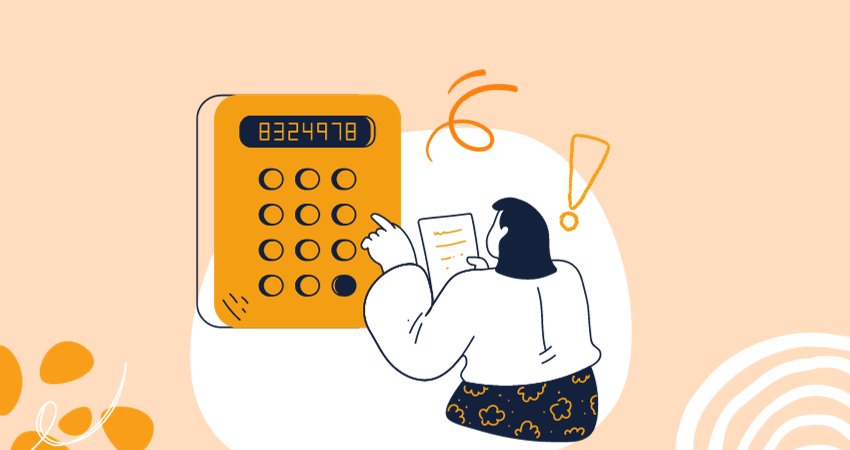Singapore is known for its business-friendly environment and attractive tax policies. Whether you are a resident or a foreigner, understanding the personal income tax system in Singapore is crucial to ensure compliance and minimise tax liabilities.
In this comprehensive guide, we cover the key aspects of personal income tax in Singapore. We'll explore tax rates, delve into filing requirements, and explain deductions. Plus, we'll discuss much more to ensure you have a thorough understanding.
Introduction to Personal Income Tax in Singapore
In Singapore, we have a progressive personal income tax system. This means as your income rises, so does your tax rate. For resident taxpayers, the more you earn, the higher the percentage of tax you pay. Currently, the highest personal income tax rate is 22%.
Now, let's talk about some upcoming changes. Starting from the Year of Assessment 2024, there's a shift to increase progressivity in the personal income tax system. Here's how it works: incomes over $500,000 and up to $1 million will be taxed at 23%, and any income exceeding $1 million will face a 24% tax rate. These rates are a notch up from the existing 22%.
It's important to note that your tax is calculated on the income you earned in the previous calendar year. When it comes to filing, the timeline is crucial. You should start filing for the Year of Assessment from March 1st, and remember, the deadline is April 18th.
However, as a non-resident who earned income in Singapore last year, you must file a personal income tax return. This requirement applies no matter the amount you earned.
Need more time to file your Income Tax Return? No problem! Just submit your request for an extension through their convenient digital service, 'Request Extension of Time to File'.
Tax Residency in Singapore
Understanding your tax residency status is key to figuring out your tax duties in Singapore. Your personal income tax rate hinges on whether you're a tax resident or not. Here's how you can tell if you're a tax resident for a specific Year of Assessment (YA):
- Singapore Citizens or Permanent Residents: You're a tax resident if you live in Singapore, except for temporary absences.
- Foreigners in Singapore: You qualify as a tax resident if you've:
- Lived or worked here for at least 183 days in the previous year. For example, you have stayed in Singapore from 1 Apr 2022 to 3 Oct 2022 (186 days). You will be regarded as a tax resident for the Year of Assessment 2023.
- Been here continuously for three years, even if your stay was less than 183 days in the first and/or third years.
- Foreigners with Continuous Work Spanning Two Years: You're a tax resident if your work period crosses two calendar years, totalling at least 183 days. This includes your presence right before and after your employment, but it doesn't count if you're a company director, a public entertainer, or a professional.
If you don't meet any of these conditions, then for personal income tax purposes, you'll be considered a non-resident in Singapore.
Resident Tax Rates: From YA 2024 Onwards

From YA 2017 to YA 2023

Let's dive into the tax rates for non-residents.
Non-Resident Tax Rates
If you are a foreigner who stayed or worked in Singapore for less than 183 days in the tax year, you qualify as a non-resident for tax purposes. Your income will face taxation at either a flat rate of 15% or the progressive resident tax rates, depending on which option yields a higher tax amount. Check out the table above to compare.
Moving on to other types of income, such as director's fees, consultation fees, and similar earnings, the tax rate for non-residents stands at 22%. This rate applies to a variety of income sources, including property rental income, pensions, and director's fees. However, it's important to note that this doesn't include employment income, which is taxed differently, and certain incomes that are subject to reduced withholding rates.
Starting from the Year of Assessment 2024, there's an important update for non-resident individuals. Except for employment income and certain incomes taxable at reduced withholding rates, the income tax rate will see a hike from 22% to 24%. This change is designed to align the tax rate for non-resident individuals with the top marginal income tax rate for resident individuals, ensuring a balanced approach in the tax system.
Tax Reliefs and Deductions
Navigating the world of personal income tax can be quite a journey, especially when it comes to deductions and reliefs. In Singapore, understanding the ins and outs of deductible expenses and available reliefs can significantly lower your tax bill. If you're self-employed or part of a partnership, including those in trades, businesses, professions, or vocations, it's crucial to grasp which business expenses you can deduct.
Let's break it down: Business expenses are essentially the costs you incur in running your business. However, it's only the allowable business expenses that can be deducted from your income to reduce your tax payable. These allowable expenses are costs directly related to generating business revenue. On the flip side, disallowable business expenses are those that you can't deduct.
Typically, these are expenses not wholly and exclusively incurred in generating business income, or those disallowed under the Income Tax Act.

On the other hand, reliefs are specific allowances granted to individuals to reduce their tax payable. Examples of reliefs include the Parent Relief, which provides tax relief for parents, and the Qualifying Child Relief, which offers relief for individuals with dependent children. Understanding these reliefs and maximising their benefits can help individuals optimise their tax planning and reduce their tax burden.
Common Mistakes to Avoid when Filing Personal Income Tax
When it comes to filing personal income tax in Singapore, there are common mistakes that individuals should avoid to ensure accuracy and compliance.
One common mistake is failing to report all sources of income. Whether it's income from employment, rental properties, or investments, it's crucial to report all sources accurately. Failure to do so can result in penalties and legal consequences.
Another mistake is overlooking deductible expenses and reliefs. Many individuals miss out on potential tax savings by not claiming all the deductions and reliefs they are eligible for. Taking the time to understand and document your deductible expenses and reliefs can help you maximise your tax savings.
Conclusion
To conclude, getting a grip on personal income tax in Singapore is vital. It's not just about meeting your tax obligations; it's also about smart tax planning. The tax system here is intricate, and packed with various rules and regulations. So, seeking expert advice and keeping yourself up-to-date is key.
Moreover, smart tax planning strategies and staying on top of the latest tax law changes and incentives can lead to significant tax savings. This not only helps in managing your finances better but also puts you in charge of your fiscal responsibilities. The bottom line is, the more you understand about personal income tax in Singapore, the more prepared you are to navigate its complexities and make the most of your tax planning.
Navigating the complexities of Singapore's tax system, especially for business owners considering transitioning to a Private Limited (Pte Ltd) company, can be challenging. Our accounting services are here to assist you with this crucial transition. Our team of experienced professionals based in Singapore is well-equipped to offer personalised support for all your tax and accounting needs related to business structure changes.
Moreover, if you're a business owner seeking advice on the most efficient ways to pay yourself and manage your personal compensation within your business framework, we're here to guide you. We understand that each business situation is unique, and our goal is to provide you with tailored solutions that align with your business objectives and personal financial goals. Don't hesitate to reach out to us for reliable and efficient guidance to manage your financial obligations with ease.






